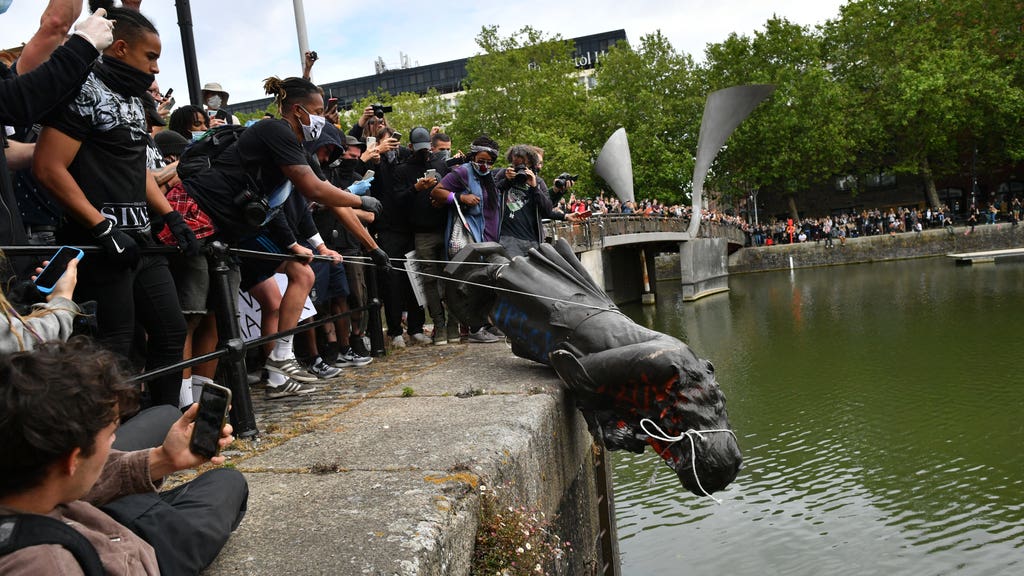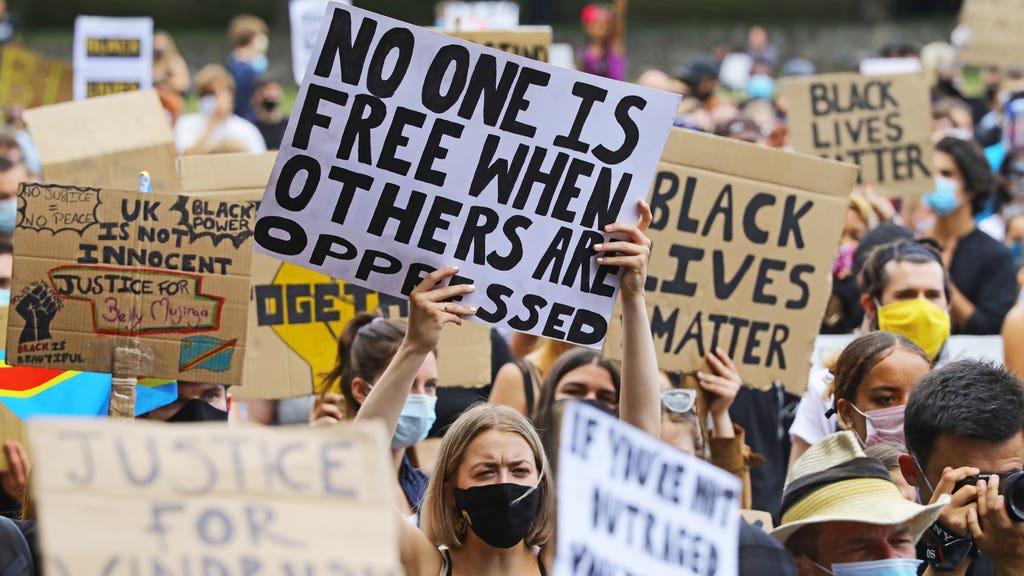UK needs its own slavery remembrance day, union tells government
Monday marks International Day for the Remembrance of the Slave Trade and Its Abolition

Your support helps us to tell the story
From reproductive rights to climate change to Big Tech, The Independent is on the ground when the story is developing. Whether it's investigating the financials of Elon Musk's pro-Trump PAC or producing our latest documentary, 'The A Word', which shines a light on the American women fighting for reproductive rights, we know how important it is to parse out the facts from the messaging.
At such a critical moment in US history, we need reporters on the ground. Your donation allows us to keep sending journalists to speak to both sides of the story.
The Independent is trusted by Americans across the entire political spectrum. And unlike many other quality news outlets, we choose not to lock Americans out of our reporting and analysis with paywalls. We believe quality journalism should be available to everyone, paid for by those who can afford it.
Your support makes all the difference.The UK government has been urged to implement a national day of remembrance for the abolition of slavery, in an effort to help “once and for all stamp out racism.”
Monday is recognised globally as the International Day for the Remembrance of the Slave Trade and Its Abolition, an initiative introduced by UNESCO in 1998.
It recognises the millions who suffered as a result of the Transatlantic slave trade, highlighting the impact this has had on generations of Black people around the world.
The day itself is geared at helping to advocate for an end to modern day slavery in its various iterations and Unite, one of the largest trade unions in the UK, has echoed this motion, and called for a UK-specific day of remembrance.
“Unite calls on the government to support the organisation of an annual remembrance day and commit resources for education and raising awareness to mark this high profile event,” the union said in a written statement.
“We recoil at the leftovers of slavery still evidenced in our society today (...) The legacy of the Slave Trade continues to manifest itself in different forms, through colonialism, apartheid, racism, poverty, economic and social deprivation, unfair trade agreements and huge debts owed to developing countries to the rich developed nations. The ongoing disgraceful treatment of the Windrush generation is a prime example of this shameful legacy.”
Earlier this year, the Government-appointed Commission on Race and Ethnic Disparities (CRED) published a report which concluded that Britain is no longer a country where the “system is deliberately rigged against ethnic minorities”.
The findings were widely condemned by prominent figures across British politics, media, academia and by organisations including the United Nations.
The commission’s chairman, Tony Sewell, was further accused of putting a “positive spin on slavery and empire” when explaining its recommendation on teaching history in schools when he wrote the following in the report’s foreword: “There is a new story about the Caribbean experience which speaks to the slave period not only being about profit and suffering but how culturally African people transformed themselves into a remodelled African/Britain.”

The Mayor of London, Sadiq Khan, will on Monday evening join with prominent community figures and academics to commemorate the International Day for Remembrance of the Transatlantic Slave Trade and its Abolition with an online ceremony.
It will include speeches from the Mayor, Deputy Mayor for Communities and Social Justice Dr Debbie Weekes-Bernard, and Chair of the London Assembly Andrew Boff, with the keynote speech by Professor Hilary Beckles, the Vice-Chancellor of the University of West Indies.
“It is vitally important that we remember and honour the millions of people who suffered and died as a result of the Transatlantic slave trade, and the impact this has had on generations of Black communities here in London and worldwide,” a spokesperson for the Mayor told The Independent.
“That’s why the Mayor marks the UNESCO International Day for Remembrance of the Transatlantic Slave Trade and its Abolition every year with a ceremony.
“He urges the Government to step forward and ensure there is a national event each year and make certain that we are all doing everything we can to educate people about the legacy of slavery and stamp out racism in all its forms.”
Audrey Azoulay, UNESCO’s director general, said: “Once and for all, it is time to abolish human exploitation and to recognise the equal and unconditional dignity of each and every individual on Earth.
“Today, let us remember the victims and freedom fighters of the past so that they may inspire future generations to build just societies.”
A Government spokesperson said: "This Government is committed to building a fairer Britain. Last summer, the Prime Minister established the independent Commission on Race and Ethnic Disparities. It was tasked with examining why disparities exist and considering how we can tackle them.
"This autumn we will respond to the Commission’s report, setting out the Government’s next steps to Build Back Fairer and create a step change on attitudes to race in this country."
Join our commenting forum
Join thought-provoking conversations, follow other Independent readers and see their replies
Comments